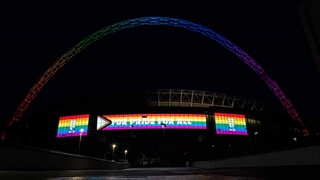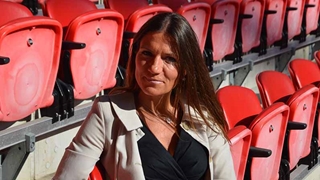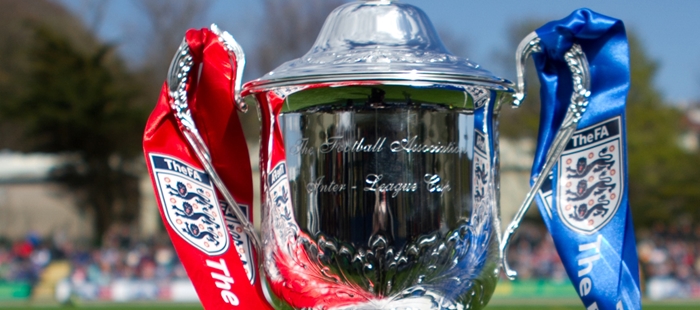
As legal and governance director at the FA, the division for which I have responsibility plays an integral role in the fight to eradicate all forms of discrimination from our game.
We investigate and, where appropriate, charge any participant where there is sufficient evidence of them having committed any form of discriminatory abuse. Where the case is found proven, they are sanctioned accordingly. We keep our approach, regulations and guidelines, as well as our processes, under regular review to ensure we are responding to the ever-changing challenges the game faces to tackle discrimination.
What’s more, as a member of the senior management team, I believe it’s crucial to help lead the way in being an active ally to those from underrepresented groups. It’s important to ensure we take responsibility for making changes where possible to enable others to be successful, and most importantly, to enable everybody to be themselves without fear of facing any form of prejudice.
I was delighted to be included in the FA’s internal mentoring scheme and put myself forward to be reverse mentored, which has meant I have been on a journey with a hugely impressive colleague from the LGBTQ+ community for the past year.
While I consider myself to be an open minded and well-informed person, as we all found following the Black Lives Matter movement momentum in 2020, unless you hear from people with lived experiences of being from an underrepresented community - including their experiences of discrimination within society - I do not believe we can be true allies.
My mentor has thankfully had a very positive experience with the football community, but that is sadly not the case for everyone. One aspect I was really keen to learn from him was around unconscious bias and language, and the effect this can have on people.
He's given me invaluable insight into his experiences, which I will always keep with me. What is key is that we never stop learning, never become complacent, and that we continue to strive to raise awareness of the various issues that arise when looking at discrimination, whatever form it may be.
This is where I think Rainbow Laces is a brilliant way of combining support and awareness of LGBTQ+ inclusion with sport. I remember being in a meeting with former FA CEO Martin Glenn, when he was wearing a pair of rainbow laces with people he had never met before, and thinking what a great message that sent. And this crucial support for the LGBTQ+ community remains ingrained within our organisation.
The more exposure we can provide, the better the education and awareness and therefore inclusion. In turn, I truly hope this leads to exposing those who think it is acceptable to discriminate against people and, instead, leads everyone to welcome the diversity that enriches all of our lives.
Allowing people not only to be themselves but to also feel comfortable being themselves can only lead to positive outcomes. We all perform better when we are our true selves and that means we can not only do our jobs better, but also help others to be their true selves too, either by being an ally or showing them how we are able to be open about who we are and embrace our differences.
The FA and football has such a huge reach, which brings great opportunities to drive real change. Rainbow Laces is one way to show that football really is For All, but this shouldn’t just be during the Rainbow Laces campaign - it should be every day.
I’m proud that the FA shows support for LGBTQ+ communities all year round, whether that’s during Rainbow Laces, taking part in Pride in London, or welcoming the Pride flag and our Three Lions Pride supporters’ group to all fixtures at Wembley Stadium.
We all have a voice, and football presents us with a unique platform; we all need to continue to use this to ensure we truly have inclusion for all.









